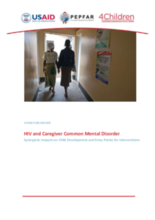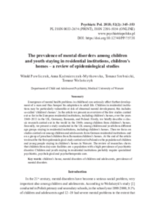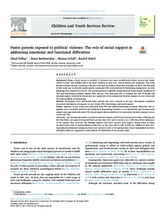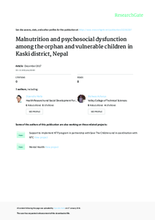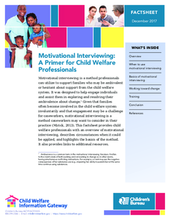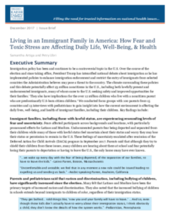Displaying 271 - 280 of 525
In this paper, the authors review published literature on the mental health status of mothers living with HIV (MLH) and how this affects their children; outline the pathways between maternal HIV, maternal mental health problems, and negative child outcomes; and then describe a number of intervention entry points that they argue have the potential to enhance impact across PEPFAR platforms.
This article presents an overview of the few studies carried out so far in the European residential institutions, including children’s homes, over the years 1940–2011 in the UK, Germany, Romania, and Poland.
This paper discusses the results of a qualitative study on adult care leavers in Flanders (Belgium).
The first goal of this study was to describe posttraumatic symptoms (PTS) and problems in functioning among foster parents following their exposure to the war.
The objective of this study was to assess malnutrition and psychosocial dysfunction among vulnerable children as well as to determine the association between malnutrition and psychosocial dysfunction among orphan and vulnerable children in Kaski district, Nepal.
This study examines and compares the extent of child maltreatment (physical, emotional, and sexual abuse; physical and emotional neglect) and lifetime traumatization with regard to current adult mental health in a group of survivors of institutional abuse and a comparison group from the community.
This article presents the findings of a study that examined the emotional health status and coping mechanisms of adolescents living in residential care facilities in Malaysia, in comparison with that of adolescents living in families.
This paper summarizes the different interventions used with URMs to get an overview of techniques used for reducing psychopathologies and difficulties of URMs and to give recommendations to help professionals.
This factsheet provides child welfare professionals with an overview of motivational interviewing, describes circumstances when it could be applied, and highlights the basics of the method.
The authors of this study conducted focus groups with 100 parents from 15 countries and 13 interviews with pediatricians to gain insight into how the current political environment in the United States is affecting the daily lives, well-being, and health of immigrant families, including their children.

